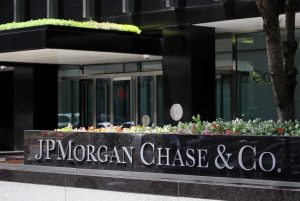Summary
- Growing national debts and trade imbalances could lead to financial turmoil.
- Rising inequality and political polarization are threatening democratic stability.
- A shift from U.S. dominance to a more multipolar world is creating geopolitical risks.
- Dalio sees parallels with past crises, predicting turbulent times ahead.
- He calls for structural reforms and warns investors to prepare for volatility.
Ray Dalio, the influential founder of Bridgewater Associates, the world’s largest hedge fund, has issued a stark warning in a Bloomberg opinion piece published on April 8, 2025. The renowned investor asserts that the global economy and political systems are approaching a seismic disruption, one he describes as a “once-in-a-lifetime” event that transcends fleeting trade disputes and tariff debates.
Dalio argues that the current fixation on tariffs masks deeper, more systemic issues threatening the stability of monetary, political, and geopolitical frameworks. Drawing on his extensive experience as a macro investor, he suggests that these challenges are not temporary setbacks but symptoms of a historic unraveling, the likes of which have rarely been witnessed in modern times.
Economic Fault Lines Deepen
Central to Dalio’s concerns is the precarious state of the global economy. He highlights the escalating burden of national debts, which have ballooned to unsustainable levels in many countries. In the United States alone, the national debt exceeds $36 trillion, a figure that has more than tripled since 2000. Coupled with persistent trade imbalances—where some nations import far more than they export—this debt accumulation risks triggering a financial reckoning. Dalio warns that such conditions could lead to market turmoil, with potential consequences including widespread business failures and a sharp decline in consumer purchasing power.
Political Fractures Threaten Stability
Beyond economics, Dalio points to a growing political crisis within nations. Rising income inequality has widened the gap between the wealthiest and the poorest, fostering resentment and division. This disparity, he contends, is driving a surge in populism and polarization, trends that echo the societal unrest of the 1930s. In democratic countries, these tensions are straining institutions, raising the specter of governance breakdowns. Dalio cautions that without intervention, internal conflicts could escalate, potentially undermining the democratic fabric that has long underpinned global stability.
A Shifting Global Order
On the international stage, Dalio sees a profound transformation underway. The post-World War II order, dominated by the United States, is losing ground as emerging powers—most notably China—assert greater influence. This shift, he argues, is not merely economic but geopolitical, with the potential to ignite trade wars, technological rivalries, and even military confrontations. The transition from a unipolar world to a multipolar one, Dalio notes, is rarely smooth, and the current trajectory suggests heightened risks of instability as alliances realign and competition intensifies.
Historical Parallels Inform the Forecast
Dalio’s analysis is deeply rooted in his study of historical cycles. Having navigated markets through crises like the 2008 financial meltdown—which he famously anticipated—he draws parallels to past periods of upheaval, such as the Great Depression and the interwar years. He frames the present moment as part of a “Big Cycle,” where excessive debt, internal discord, and external rivalries converge to reshape the world order. This perspective, honed over decades of managing Bridgewater’s $150 billion in assets, lends weight to his prognosis of turbulent times ahead.
A Call for Action Amid Uncertainty
Far from a passive observer, Dalio positions his commentary as a clarion call. He urges policymakers and investors to move beyond short-term fixes and address the structural weaknesses he identifies. For governments, this means tackling debt sustainability and bridging societal divides. For markets, it requires preparing for volatility as the old economic playbook falters. In tandem with his Bloomberg piece, Dalio is promoting his forthcoming book, How Countries Go Broke: The Big Cycle, which promises a detailed roadmap for navigating these challenges.
Resonating Beyond Wall Street
Dalio’s warning arrives at a time of heightened global uncertainty. Inflation remains stubborn in many economies, geopolitical tensions simmer from Eastern Europe to the South China Sea, and domestic political battles dominate headlines. His voice carries particular resonance given his track record—Bridgewater’s success owes much to his ability to foresee macro trends others miss. Yet, his outlook is not universally accepted. Some analysts argue that technological innovation and adaptive monetary policies could mitigate the risks he foresees, though few dispute the gravity of the underlying issues.
As the world contends with these crosscurrents, Dalio’s latest missive underscores a pivotal moment. Whether his predictions materialize as a full-blown crisis or a manageable transition remains to be seen. For now, his message is unequivocal: the foundations of the current order are shaking, and readiness is imperative.




Be First to Comment